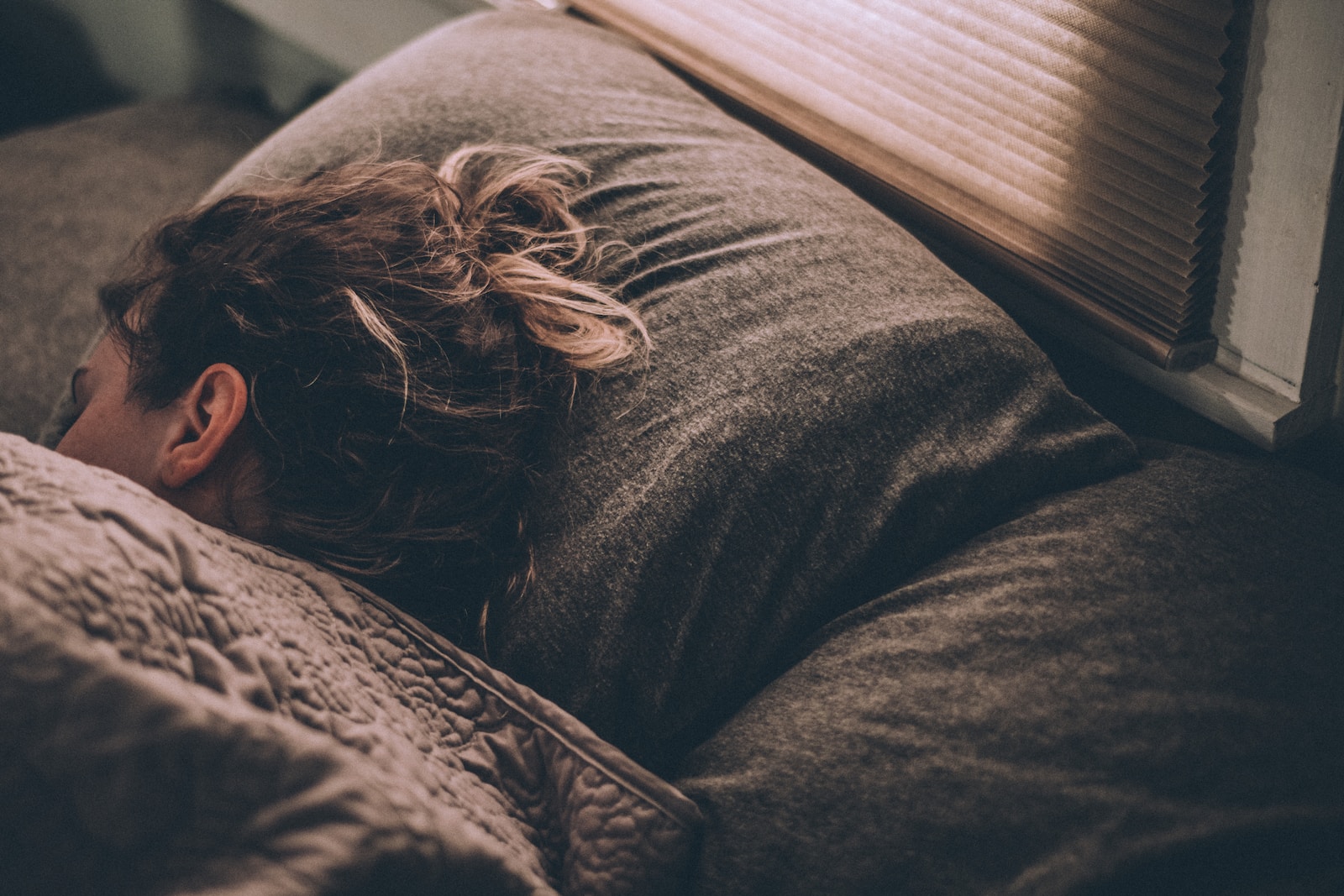The Connection Between Sleep and Nutrition
Are you getting enough sleep? And not just any kind of sleep, but quality sleep that leaves you feeling rested and energized for the day ahead? If the answer is no, have you considered how your diet may be affecting this crucial aspect of your health? The truth is, there is a close connection between what we eat and how well we sleep.
In this blog post, we will explore the fascinating link between nutrition and sleep hygiene to help shed some light on why catching those vital Zzzs can be so elusive in our modern world. So grab a cup of chamomile tea and get ready to discover some surprising insights into optimizing both your diet and your slumber!
What is sleep and what does it do?

Sleep is essential for both the body and mind. During sleep, the body repairs itself and rebalances its energy levels. Sleep also allows your brain to reorganize and make new connections, which is why it’s so important for students to get enough – not only during developmental stages but also throughout their lives. When we don’t get enough sleep, our ability to think clearly diminishes, as does our productivity.
In addition to its cognitive benefits, sleep is traditionally linked with gut health because it helps regulate the gut-brain connection. The gut sends signals to the brain about what it’s digesting; when we don’t get enough sleep, these signals may be inaccurate or distorted. This can lead to digestive issues like constipation or diarrhea, as well as other mental illnesses like anxiety or depression.
There are numerous ways to get more sleep – you can try different relaxation techniques like meditation or deep breathing exercises, avoid caffeine before bedtime, establish a regular bedtime routine and limit screen time in the evening hours. Getting a good night’s sleep isn’t easy, but it’s definitely worth it!
The importance of a good night’s sleep
Sleep is one of the most important things you can do for your health. Getting enough sleep not only allows your body to heal itself but also leads to better overall health.
When you don’t get enough sleep, it can have negative consequences on your body. One example is that when you don’t get enough sleep, your hormones may be out of balance. This can lead to weight gain, stress and other health problems.
Not getting enough sleep can also lead to poor nutrition because when we don’t get enough sleep, our bodies are less able to digest food properly. This can cause many problems such as obesity and diabetes.
So make sure to get at least 7-8 hours of quality sleep each night!
How sleep affects our bodies and minds
Sleep is an essential component of a healthy lifestyle. It allows our bodies to rejuvenate, restore energy and focus, and manage stress. Proper sleep also contributes to better overall health by promoting weight maintenance, reducing the risk of obesity, improving moods and cognitive function, and supporting Immunity.
According to the National Sleep Foundation report “The Status of Insomnia in America,” insomniacs are more likely than others to be obese or have Type II diabetes. This indicates that inadequate sleep not only causes sufferance for individuals with insomnia, but it can also create serious health concerns for those who are overweight or have other metabolic disorders.
Inadequate sleep has also been linked to chronic heart disease, stroke, impaired memory and learning skills, depression, anxiety, and problems with concentration. Thus, while poor sleep is often seen as a problem for individuals who experience it on a regular basis, it can actually be closely linked with many majorities of chronic disease.
What Causes Poor Sleep?
There are many causes for inadequate sleep, including work stress, noise from adjacent apartments or businesses, computers in the bedroom, caffeine consumption before bedtime, skipping breakfast, too much caffeine in the morning, watching television in bed before going to bed, working late into the night, and exercising late in the evening or in close proximity to bedtime.
How to get Better Sleep
Set a regular sleep schedule. Going to bed and waking up at the same time every day can help regulate your body’s natural sleep rhythm.
Avoid caffeine and alcohol before bed. They make it difficult to fall asleep and can keep you up later.
Keep the bedroom free of electronics screens that emit light such as TVs, smartphones, laptops, and tablets. These screens emit blue light which may disrupt your circadian rhythm and disrupt your sleep.
Avoid working in bed if possible. Putting on clothing, reading a book, or using a computer monitor reduces eye movement and affects sleep quality.
Avoid smoking cigarettes close to bedtime. Nicotine constricts blood vessels, leading to decreased deep sleep and increased awakenings from sleep.
The link between diet and sleep
There is a link between diet and sleep. One of the most important nutrient deficiencies that can affect both health and quality of sleep is insufficient dietary magnesium. Magnesium is essential for over 300 biochemical reactions in the body, including regulating blood sugar levels, muscle function, nerve function, and maintaining cognitive functions [1]. Excess stress has been linked to magnesium deficiency because it can deplete the body’s stores [2]. Magnesium also helps to improve sleep quality by working with other neurotransmitters like dopamine and serotonin which are responsible for inflammation [3], anxiety, depression, and overall health.
One way to increase your magnesium intake is through prenatal supplementation. A Harvard study found that pregnant women who supplemented with 400 milligrams of magnesium daily had infants who weighed 1 pound 9 ounces on average at four months old—about a third heavier than babies of mothers who didn’t receive supplements [4]. Unfortunately, not all foods are good sources of this mineral. Beans, leafy greens such as kale or spinach, nuts and seeds, whole grains,- especially those with bran such as oatmeal,- dairy products like yogurt and cheese,- dark chocolate, and sea vegetables like kelp are all good sources of magnesium.
For some people, eating a good diet and getting enough sleep can be a challenge. One way to help increase your chances of getting quality sleep is to make sure you are eating a balanced diet that includes foods that are high in antioxidants and magnesium.
What to do if you’re struggling to get enough sleep
If you’re struggling to get enough sleep, here are some tips to help improve your quality of sleep.
First, make sure your bedroom is dark and quiet. Spent time in a light and noisy environment before bed can disrupt your sleep cycle.
Set a regular bedtime and stick to it as much as possible. Bedtime routines have been found to be helpful in promoting relaxation before sleep.
Create a nightly routine including winding down for 30 minutes beforehand by reading or focusing on calming music. Taking these few simple steps can help you get the most restful sleep possible.
If you find that your sleep is still not up to par, speak to your doctor about some potential remedies, such as medication or therapy.
If you experience a lot of stress in your life, it’s important to find ways to relieve it. Reduce your exposure to light in the evening and drink plenty of water before bedtime. Taking these steps can help you get a better night’s sleep and improve your overall quality of life.
Conclusion
As we grow older, it becomes increasingly important that we get enough sleep. Poor sleep can have a negative impact on our health, including our ability to maintain a healthy weight and reduce inflammation. In addition to promoting better overall health, getting enough good quality sleep has been shown to improve our memory and cognitive function! If you are looking for ways to improve your overall well-being, consider adding more sleeps into your nightly routine.
Getting plenty of sleep is important for our health, both physically and mentally. In addition to promoting better overall health, getting enough good quality sleep has been shown to improve our memory and cognitive function! If you are looking for ways to improve your overall well-being, consider adding more sleeps into your nightly routine.






